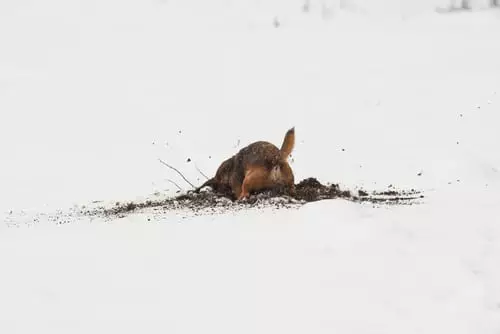While many dog owners might find the act of digging to be an unwanted nuisance, it’s essential to view this behavior through the lens of canine instinct and breed characteristics. Certain dog breeds exhibit a natural propensity toward digging—an action that is rooted in their heritage and original purposes. Owners must recognize that digging is more than just a destructive behavior; it’s an expression of instinct, energy, and innate hunting skills. Understanding the reasons behind this act can empower owners to manage and channel this behavior constructively rather than merely dissuading it.
Terrier Traits: The Digging Enthusiasts
Terriers, in particular, are often synonymous with digging. Breeds like the Cairn Terrier embody this trait, having been bred in Scotland for the specific purpose of hunting small game. Their drive to dig is not merely rote behavior but rather a complex instinct that harkens back to their ancestral roles. Bedlington Terriers, with their unique appearance, may seem far removed from the rigorous life of a working dog, yet they too carry the digging instincts necessary for their original vermin-hunting roles.
Dachshunds, with their short legs and elongated bodies, are practically designed for burrowing. Their history of hunting badgers is a testament to their digging prowess. While many owners may find it cute at first, neglecting their need for regular stimulation can turn this breed into gleeful garden destructors. Similarly, the Jack Russell Terrier thrives on activity and mental challenges. Without sufficient engagement, these dogs will revert to digging as a way to channel their energy.
Gentle Giants and Their Digging Antics
Not all digging breeds fit the “terrier” mold. The Basset Hound and Bloodhound, though markedly different in stature and temperament, share a keen affinity for digging. Basset Hounds, with their low-to-the-ground profiles, were bred for burrowing. Their propensity to dig is not just an idiosyncrasy; it is an evolutionary trait that remains strong, begging the question: How can owners accommodate such instincts while also preserving their outdoor spaces?
Bloodhounds may not dig as purposefully into the earth as some other breeds, but boredom can lead to their own digging episodes. This breed, celebrated for its extraordinary scent-tracking abilities, requires mental and physical stimulation to curb destructive digging. Meanwhile, the enormous Siberian Husky digs not just for fun but to find cooler ground in hot weather. Owners must appreciate these underlying motivations to foster a harmonious relationship with their furry companions.
The Unseen Impact of Environment
Many breeds, such as the West Highland White Terrier and Chow Chow, engage in digging behavior influenced by environmental factors. During warmer months, these breeds are more likely to dig as a means to regulate their temperatures through the cooler earth. Recognizing this behavior allows owners to create alternative cooling spaces or shaded areas that can satisfy their pets’ instincts while preserving gardens.
Understanding the psychological underpinnings of a dog’s digging behavior extends beyond breed lines. For instance, breeds like the Miniature Schnauzer, traditionally used as all-purpose farm dogs, may exhibit digging behaviors as a means to explore their environments or assert their presence. This calls for a nuanced approach from owners—one that addresses both instinctual behavior and the need for engagement and supervision.
Strategies for Managing Digging
So, what can owners do to manage these digging tendencies effectively? Creating a dedicated digging area in the yard can offer an outlet for these natural instincts while limiting damage to the rest of the garden. Positive reinforcement training can also redirect unwanted digging behaviors into more appropriate activities. Regular, vigorous exercise is crucial in ensuring that these energetic breeds remain stimulated and less prone to destructive activities.
Instead of viewing digging strictly as a behavior to be corrected, owners should reassess their dogs’ needs and engage in activities that satisfy their instincts—be it through agility training, scent games, or regular walks. This approach fosters a stronger human-animal bond, enriching the lives of both owner and pet in delightful and unexpected ways.
In the end, recognizing the significance of digging as an expression of a dog’s heritage allows for a more fulfilling and connected relationship with these spirited animals. Owners who appreciate their furry friends’ inherent instincts will likely find digging transforms from a troublesome habit into a joyous celebration of canine nature.

